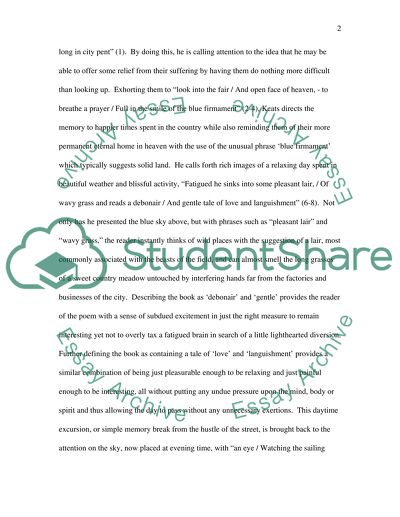Cite this document
(“Keats- Poetry Essay Example | Topics and Well Written Essays - 1500 words”, n.d.)
Retrieved from https://studentshare.org/miscellaneous/1539593-keats-poetry
Retrieved from https://studentshare.org/miscellaneous/1539593-keats-poetry
(Keats- Poetry Essay Example | Topics and Well Written Essays - 1500 Words)
https://studentshare.org/miscellaneous/1539593-keats-poetry.
https://studentshare.org/miscellaneous/1539593-keats-poetry.
“Keats- Poetry Essay Example | Topics and Well Written Essays - 1500 Words”, n.d. https://studentshare.org/miscellaneous/1539593-keats-poetry.


